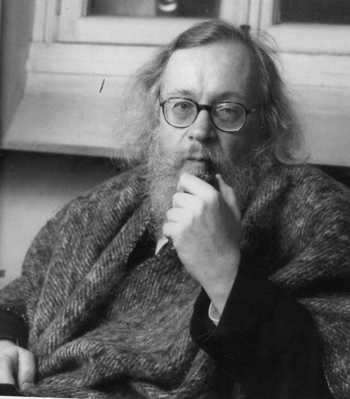[Liz Harbaugh]
Today I want to talk a little bit about one of Grotowski’s central tenets, which is that it’s critical to confront the text on which you’re working. I want to start with a quote, not from Grotowski, but from Anne Bogart.
“Inside every good play lives a question. A great play asks big questions that endure through time. We enact plays in order to remember relevant questions; we remember these questions in our bodies and the perceptions take place in real time and space.” – Anne Bogart
Anne Bogart is what I might call one of Grotowski’s inheritors, in that she has been highly influenced by his ideas. Here, we get a glimpse of what Grotowski thinks of as “confronting the text.” Bogart talks about texts through time and space and wants us to seek out the questions that live within them. Particularly, I think, in this class, it’s important to think about the texts we use in terms of their usefulness for moving us beyond them. That is to say, the texts are not the product, but instead they are the way into the project.
Grotowski is looking for a really specific confrontation with the text. He says that “We want to confront the text…to confront the text means to test it, to struggle with it, to come to grips with its meaning in terms of our own modern experiences, and then to give our own answers.” Furthermore, when working with classic texts, Grotowski suggests that actors are building a bridge between the past and the present. So, in other words, we take a classic text, like the ones we’re confronting in this class, and we search within it to find its questions and our own answers to them.
We might say that Grotowski is searching for a method of communication that allows us, as contemporary artists, to experiences timeless questions that can be read across cultural boundaries. So, essentially, Grotowski is asking us to look inside of our bodies and emotions in order to find connections to each other, because it is the actor who must be in confrontation before the audience is able to do so. It is the actor’s confrontation that paves the way for a spectator to understand the confrontation as well. It is through confronting the texts, by finding the moments in the text, the questions in the text, that resonate with us individually and collectively, and then sinking deeper into those moments to find the impulse behind the moment, and deeper again, and again, that we come to the most pure, elemental, physical-emotional experience.
But how else do these texts help us? If we tried to seek out “the most human moments” of our experience, we might be looking too hard. By using a text – by confronting a text and asking it and what? What more? What else? From where? Why? How? Embedded in that confrontation is the constant pursuit of the defining experiences and communications and communities that make us human.
So when we confront texts, we are actually confronting questions about what it means to be a human being relating to other human beings; taking texts not of our contemporary period, those outside of our recent recollection helps us to distill the text down to the most elemental qualities of humanity. So, Grotowski’s international theatre community, and those communities inspired by his work (like this one), are looking to connect a written text with actors’ bodies – in that confrontation, we as artists are able to see ourselves afresh as humans.
Therefore, the questions we need constantly to be asking of these texts, and ourselves, go something like this: what threads, what connections, what experiences and relations still happen for, to, and because of us – how have humans stayed the same, how are we different, how can we see ourselves simultaneously anew and ancient through confrontation with a text?
Monday, January 11, 2010
Subscribe to:
Post Comments (Atom)

No comments:
Post a Comment